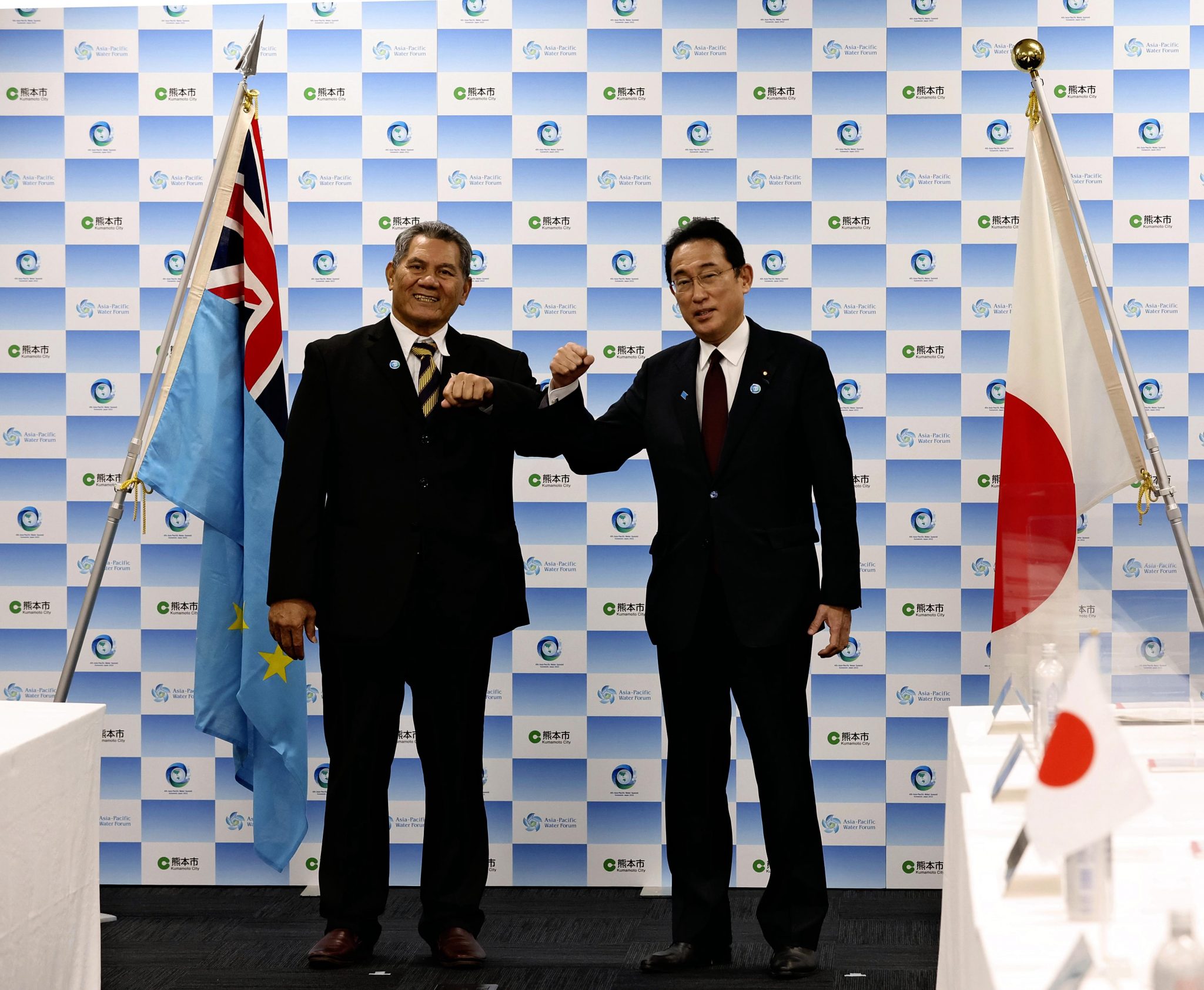Author: Tadashi Iwami, Hokkaido University
On 19 April 2022, the governments of China and the Solomon Islands signed a security agreement. The Solomon Islands was the first Pacific island country to sign such a pact — and traditional powers in the Pacific region were swift in responding to the security deal.
High-ranking officials from the United States, Australia, New Zealand and Japan met in Honolulu on the same day and expressed their shared concerns over the security deal by noting ‘serious risks to a free and open Indo-Pacific’. They also reaffirmed the ‘four countries’ enduring and shared commitment to the Pacific Islands’.
In just three days, White House Indo-Pacific Coordinator, Kurt Campbell and US Assistant Secretary of the Bureau of East Asian and Pacific Affairs, Daniel Kritenbrink, went to the Solomon Islands to warn Prime Minister Manasseh Sogavare that the United States would ‘respond accordingly’ to the signing of the deal. Prior to her visit to Tokyo, New Zealand Prime Minister Jacinda Ardern stated from Singapore on 20 April 2022 that she was concerned about the ‘militarisation of the Pacific’.
The initial Japanese response to the China–Solomon Islands security deal appeared in the joint statement of prime ministers Fumio Kishida and Ardern on 21 April 2022. While there was no specific statement on the security deal, both leaders reiterated ‘the need to address growing strategic challenges in the Pacific that could destabilise the regional security environment’. On the same day, the Japanese government announced that it would send a high-ranking official from its foreign ministry to deliver an official message to the government of the Solomon Islands.
When Kishida met Tuvalu’s Prime Minister Kausea Natano at the fourth Asia-Pacific Water Summit in Kumamoto, Japan, on 23 April 2022 , he also took the opportunity to inform his counterpart that Japan would be ‘closely watching [China’s moves] with interest’.
By 26 April 2022, Kentaro Uesugi, Japanese Parliamentary Vice Foreign Minister, landed in the Solomon Islands and passed Kishida’s concerns onto Sogavare. He flew directly from the Japanese Self-Defence Force’s Iruma air force base to Honiara using a Japan Air Self-Defense Force U-4 multi-purpose support aircraft.
It is rare for a parliamentary vice-minister to board an air force aircraft for overseas visits. Foreign Minister Yoshimasa Hayashi also visited Fiji and Palau on 7–8 May 2022 to discuss security concerns with Fijian Prime Minister Frank Bainimarama and Secretary-General of the Pacific Islands Forum Henry Puna in Suva and Palauan President Surangel Whipps Jr in Ngerulmud.
Japan’s response to the China–Solomon Islands security deal was swift. Japan usually responds to matters of the Pacific region through the hosting of its three-yearly Pacific Islands Leaders’ Meeting (PALM) or through the provision of foreign aid via the Japan International Cooperation Agency. But this time, senior officials were in the Pacific in a matter of days.
The Japanese media also reacted quickly to the China–Solomon Islands security deal. Yomiuri Shimbun, Japan’s largest conservative newspaper, warned that the United States, Australia and Japan needed to step up its engagement to sustain peace and stability because China was preparing to use the region as a ‘foothold for China to expand its military influence’.
On 3 June they added that ‘China is attempting to expand its military influence by intensifying its diplomatic offensive on South Pacific island nations. The United States, Australia and Japan must work together to deal with the issue so that regional stability will not be undermined’. Asahi Shimbun, the second-largest and a more liberal newspaper, similarly marked China’s move as an attempt to increase its military presence and stressed that China should refrain from ‘opaque activities related to regional stability’.
The Japanese government’s response shows it has realised that the Pacific islands must be part of its Free and Open Indo-Pacific vision. The shared editorial stance of Japan’s conservative and liberal media is a rare occurrence which suggest that both sides of civil society support Japan’s greater engagement with the Pacific region in order to address China’s ever-increasing military presence.
While the Japanese government has successfully earned the confidence of Pacific countries through PALM since 1997, it must strike a fine balance. On the one hand, Japan needs to contribute to capacity building — coupled with efforts to strengthen institutions and build infrastructure — in individual Pacific island countries and the collective region. On the other hand, Japan must make sure that the region is well-protected against China’s geostrategic ambitions.
Building a collective, open and transparent security architecture in the Pacific is paramount. Japan should work in close cooperation with like-minded countries such as New Zealand, Australia, the United States, the United Kingdom, France, Singapore and India. Japan needs to play a central role in building the Pacific while using existing regional institutions, such as the Pacific Island Forum, PALM, the Japan-led South Pacific Defence Meeting and the recently announced Partners in the Blue Pacific, to achieve its strategic aims without losing the trust of its Pacific partners.
Tadashi Iwami is Lecturer in the Modern Japanese Studies Program at Hokkaido University.





















Discussion about this post